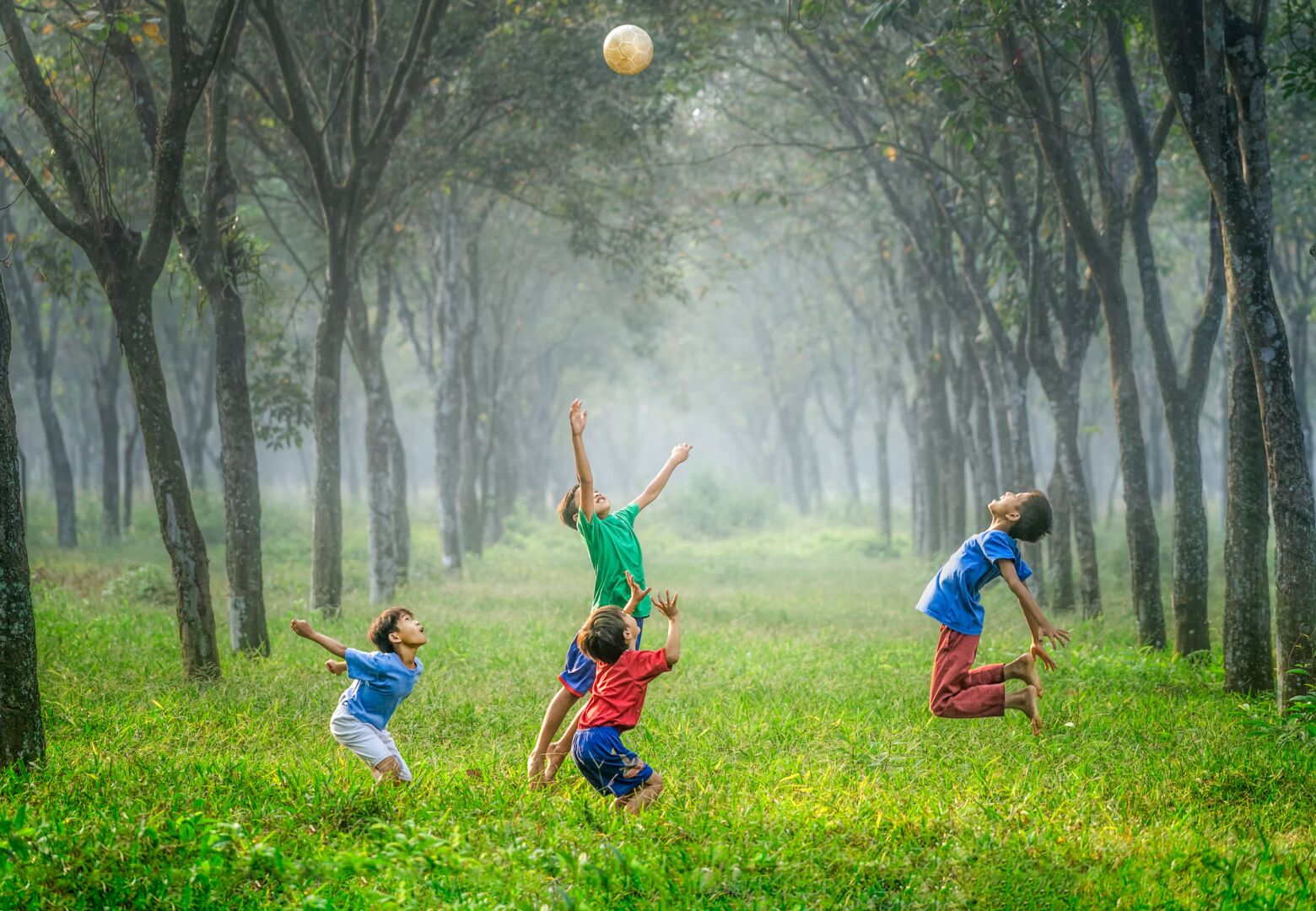The Benefits of Outdoor Play for Child Development
10 Creative Ways to Encourage Healthy Eating Habits in Children
In today’s digital age, where screens dominate much of children’s time and attention, the value of outdoor play cannot be overstated. From climbing trees to playing tag, outdoor activities offer a wealth of benefits that contribute to children’s physical, cognitive, social, and emotional development. In this article, we’ll explore the numerous advantages of outdoor play and why it’s essential for children’s overall well-being.

Physical Health Benefits
Outdoor play provides children with opportunities for physical exercise and movement, crucial for developing strength, coordination, and cardiovascular health. Running, jumping, climbing, and biking are just a few activities that promote gross motor skills and help prevent childhood obesity. Exposure to natural sunlight also aids in the production of vitamin D, essential for bone health and immune function.
Enhanced Cognitive Development
Outdoor environments stimulate children’s senses and curiosity, providing endless opportunities for exploration and discovery. Natural settings offer diverse textures, sounds, smells, and sights that engage children’s senses and encourage them to observe, investigate, and problem-solve. Nature-based play fosters creativity, imagination, and critical thinking skills as children interact with the environment and adapt to its challenges.
Improved Emotional Well-being
Time spent outdoors has been linked to improved mood, reduced stress, and enhanced emotional resilience in children. Nature has a calming effect on the mind and can help alleviate symptoms of anxiety and attention disorders. Outdoor play allows children to experience freedom, independence, and a sense of accomplishment as they navigate natural obstacles and take risks in a safe environment.
Developing Social Skills
Outdoor play encourages social interaction, cooperation, and communication among children. Whether building forts, playing team sports, or engaging in imaginative role-play, outdoor activities provide opportunities for collaboration, negotiation, and conflict resolution. Children learn to share, take turns, and empathize with others, laying the foundation for healthy relationships and social competence.
Building Environmental Awareness
Exposure to nature fosters a sense of connection and appreciation for the natural world in children. Through outdoor play, children develop a greater understanding of ecological concepts, such as plant and animal life cycles, weather patterns, and conservation efforts. Spending time outdoors instills a sense of stewardship and responsibility for protecting the environment for future generations.
Learning Risk Management
Outdoor play offers opportunities for children to assess and manage risks independently, contributing to their resilience and confidence. Climbing trees, navigating uneven terrain, and exploring unfamiliar environments teach children to assess their capabilities, make decisions, and adapt to new challenges. While supervision is important, allowing children to take calculated risks promotes self-confidence and problem-solving skills.
Improving Sleep Patterns
Exposure to natural light and physical activity during outdoor play can positively impact children’s sleep patterns. Regular outdoor play helps regulate circadian rhythms and promotes deeper, more restful sleep. Establishing a routine of outdoor play during the day can contribute to better sleep quality and overall well-being.
Outdoor play is not just a recreational activity; it’s a fundamental aspect of childhood that supports holistic development. By providing children with ample opportunities for outdoor play, parents and caregivers can nurture their physical health, cognitive abilities, emotional well-being, social skills, environmental awareness, risk management skills, and sleep patterns. So, encourage your children to step outside, explore nature’s wonders, and reap the countless benefits of outdoor play.
ing.
This post is also available in: Français (French)